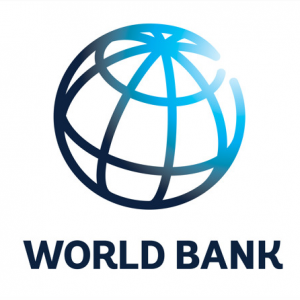
Definitions of an NGO: World Bank
“The diversity of NGOs strains any simple
definition. They include many groups and institutions that are entirely or
largely independent of government and that have primarily humanitarian or
cooperative rather than commercial objectives.
They are private agencies in industrial countries that support international development; indeginous groups organized regionally or nationally; and member-groups in villages. NGOs include charitable and religious associations that mobilize private funds for development, distribute food and family planning services and promote community organization. They also include independent cooperatives, community associations, water-user societies, women’s groups and pastoral associations. Citizen Groups that raise awareness and influence policy are also NGOs”
Simply put – it is an organization of private individuals who believe in certain basic social principles and who structure their activities to bring about development to communities that they are servicing.
According to Candid Learning ( https://learning.candid.org/ ):
Among the wide variety of roles that NGOs play, the following six can be identified as important, at the risk of generalization:

1. Development and Operation of Infrastructure:
Community-based organizations and cooperatives can acquire, subdivide and develop land, construct housing, provide infrastructure and operate and maintain infrastructure such as wells or public toilets and solid waste collection services. They can also develop building material supply centres and other community-based economic enterprises. In many cases, they will need technical assistance or advice from governmental agencies or higher-level NGOs.
2. Supporting Innovation, Demonstration and Pilot Projects:
NGO have the advantage of selecting particular places for innovative projects and specify in advance the length of time which they will be supporting the project – overcoming some of the shortcomings that governments face in this respect. NGOs can also be pilots for larger government projects by virtue of their ability to act more quickly than the government bureaucracy.
3. Facilitating Communication:
NGOs use interpersonal methods of communication, and study the right entry points whereby they gain the trust of the community they seek to benefit. They would also have a good idea of the feasibility of the projects they take up. The significance of this role to the government is that NGOs can communicate to the policy-making levels of government, information bout the lives, capabilities, attitudes and cultural characteristics of people at the local level.
NGOs can facilitate communication upward from people tot he government and downward from the government tot he people. Communication upward involves informing government about what local people are thinking, doing and feeling while communication downward involves informing local people about what the government is planning and doing. NGOs are also in a unique position to share information horizontally, networking between other organizations doing similar work.
4. Technical Assistance and Training:
Training institutions and NGOs can develop a technical assistance and training capacity and use this to assist both CBOs and governments.
5. Research, Monitoring and Evaluation:
Innovative activities need to be carefully documented and shared – effective participatory monitoring would permit the sharing of results with the people themselves as well as with the project staff.
6. Advocacy for and with the Poor:
In some cases, NGOs become spokespersons or ombudsmen for the poor and attempt to influence government policies and programmes on their behalf. This may be done through a variety of means ranging from demonstration and pilot projects to participation in public forums and the formulation of government policy and plans, to publicizing research results and case studies of the poor. Thus NGOs play roles from advocates for the poor to implementers of government programmes; from agitators and critics to partners and advisors; from sponsors of pilot projects to mediators.
The Role of NGO's
In their article “The role of NGOs in Africa: are they a force for good?” the Conversation (https://theconversation.com/the-role-of-ngos-in-africa-are-they-a-force-for-good-76227) states that non-governmental organisations have become key actors in responding to poverty and related suffering. In Africa, NGOs play a leading role in providing health care and education.
The non-profit sector continues to grow rapidly in Africa and around the world. In South Africa alone, there are more than 100,000 registered non-profit organisations. And for most observers, they seem to be well-intentioned actors who do a lot of good on the continent.
But NGOs also have their detractors who argue that they are receiving growing amounts of donor aid, but aren’t the most suitable actors for really improving people’s lives.
How to not only survive, but thrive as an NGO in South Africa?
Reading the above content, I’m sure it begs the question of what hardships face an NGO in South Africa (but probably anywhere in the world), and how do the overcome these difficulties to continue providing a much needed lifeline to their communities.
A study by OpenUCT (https://open.uct.ac.za/handle/11427/10203), found that funding remains one of the main problems that NGOs are facing. All NGOs that were engaged in the research were networked into a broader coalition and identified challenges and benefits from networking with government and civil society.
While there might be many challenges facing our local NGOs, we’ve decided to make a difference at VBM (www.virtualbusinessmall.co.za), no matter how small. Our 1st step is to help any registered NGO gain traction in their digital journey. We will be giving all identified NGOs a 1 page WordPress website in our digital mall. This will give cash-strapped, “invisible” NGOs a platform to be seen, and to engage people in the new “real” world – the digital environment.
Through our virtual mall, the NGOs will not only have a digital footprint, they will also be afforded market visibility through the ongoing marketing efforts (internal and external) of the VBM family.
